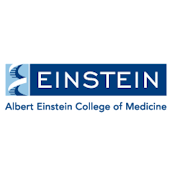
Albert Einstein College of Medicine

Albert Einstein College of Medicine is a research-intensive medical school. For more than 60 years, our diverse faculty and staff have set the standard for excellence in medical and graduate education and patient-centered clinical care, and have made major contributions to scientific research enhancing human health in our communities and beyond. Our mission is to prepare a diverse body of students to become knowledgeable, compassionate physicians and innovative scientific investigators, and to create new knowledge.
Links
Displaying all articles

Scientists are discovering viral genetic sequences in the wild faster than they can analyze them. A kind of ChatGPT for proteins can help make sense of all that data.

Dancing requires physical, social and cognitive engagement and, as a result, it may bolster a wide network of brain regions.

Deciphering the biological pathways behind rare genetic diseases often involves assembling a team of specialists to work closely with the family members of those affected.

Although Medicare has agreed to pay for Aduhelm, its coverage comes with restrictions.

De nombreux centenaires n’ont pas nécessairement eu une vie saine ; sont-ils génétiquement différents ?

Many centenarians haven’t lived healthy lives, so are they genetically different?

Palliative radiation therapy can improve a cancer patient’s life, by alleviating pain and other symptoms. Unfortunately, some doctors associate the term with end-of-life care and fail to refer people.

